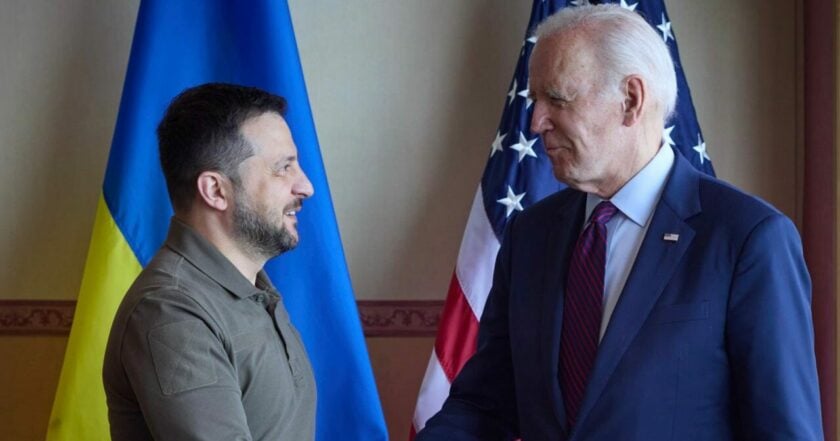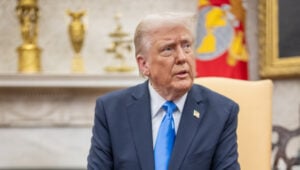Zelensky and Biden discuss sanctions on Russia’s shadow fleet

Photo: Telegram/ Zelenskiy Official
Ukrainian President Volodymyr Zelensky held a phone call with US President Joe Biden, focusing on strengthening sanctions against the Russian Federation.
Zelensky shared details of the conversation on his Telegram channel, thanking the United States for its support of Ukraine and for rallying the international community.
At the start of the call, Zelensky offered condolences to Biden over the devastating wildfires in California, which resulted in significant loss of life and destruction.
"I spoke with President Biden and expressed my condolences regarding the tragic wildfires in California and the lives lost. I also acknowledged the bravery of Americans working to save lives and contain the spread of these fires," Zelensky said.
The discussion also highlighted a new package of sanctions targeting the illegal export of energy resources used to fund Russian military aggression. These measures include restrictions on Russia's shadow tanker fleet and major energy companies such as Gazpromneft and Surgutneftegaz.
"We discussed the details of the new US sanctions package targeting Russian energy, which plays a key role in funding Putin's war. It is crucial that the United States has taken action against Russia's shadow tanker fleet and companies like Gazpromneft and Surgutneftegaz, which funnel money directly to Putin.
He must feel the cost of his war through the depletion of his personal resources. I am grateful to the United States—both parties and both houses of Congress—for their support of these just measures to pressure Russia for its unprovoked and criminal aggression," Zelensky emphasized.
During their discussion on the military situation, Zelensky highlighted the urgent need to strengthen Ukraine's air defense systems to protect civilians from Russian missile and drone attacks. He praised the effectiveness of the Patriot systems and stressed the importance of increasing their supply.
"We value President Biden's statement that preserving and protecting Ukraine's independence is critically important for all of Europe and the democratic world. We will stand our ground and secure lasting peace for our people and our country," Zelensky stated.
The Ukrainian president expressed confidence in the shared commitment to achieving a sustainable peace that guarantees the security and well-being of Ukraine's citizens.
"I expressed gratitude for the United States' support for our country, our independence, and the unifying of the international community. Together, we have built a global coalition of defenders of freedom and the principles of international peace and security," he said.
As a reminder, the United Kingdom has also imposed sanctions on Russian companies Gazpromneft and Surgutneftegaz for the first time. These restrictions aim to cut into Russia's revenues from oil sales.
In related news, Japan announced new sanctions against Russia on Friday, January 10, in response to the war in Ukraine. The measures include freezing the assets of 33 organizations and 12 individuals, including a North Korean citizen, and restricting the export of 335 products.
What is known about Russia's shadow fleet?
In December 2022, Russia began assembling a "shadow fleet" of aging tankers to export oil and evade sanctions imposed in response to its war against Ukraine.
As previously reported, the United States imposed sanctions on those organizing the transportation of Russian oil sold above the $60-per-barrel price cap. These sanctions include freezing all their property in the US and prohibiting related transactions involving US-based individuals or entities.
The European Union also considered instructing Denmark to inspect and potentially block tankers carrying Russian oil through its waters. This measure was part of Western efforts to enforce the price cap, which Russia has sought to circumvent.
It is notable that vessels in Russia's so-called "shadow fleet" have been responsible for at least nine oil spills worldwide since 2021, raising significant environmental concerns.
Ukrainian intelligence has identified 238 oil tankers that contribute to Russia's multi-billion-dollar oil revenues while posing serious threats to global environmental security.





















































